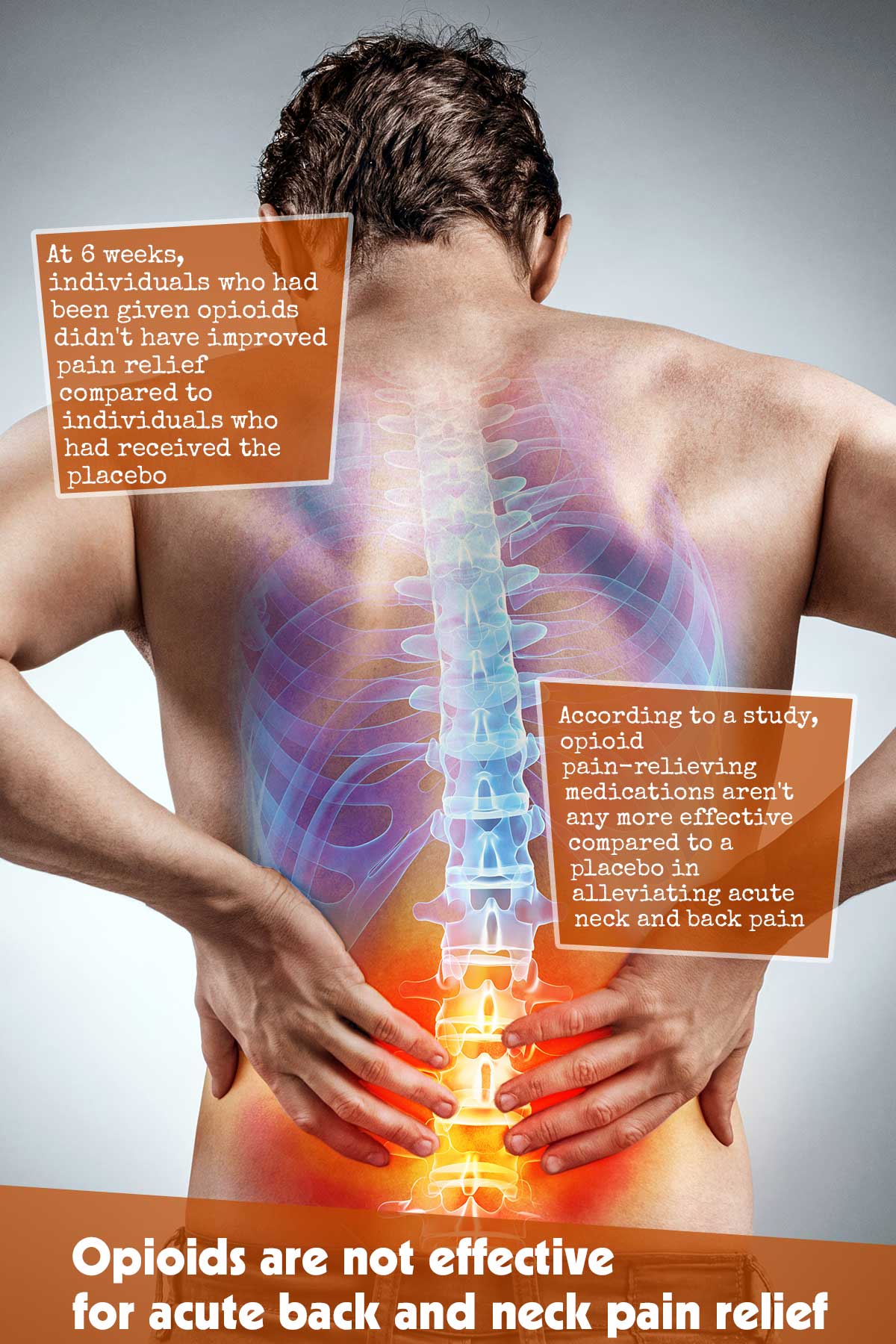According to a study, opioid pain-relieving medications aren’t any more effective compared to a placebo in alleviating acute neck and back pain and could even be harmful.1✅ JOURNAL REFERENCE
DOI: 10.1016/S0140-6736(23)00404-X
The researchers say this is evidence that treatment recommendations should be amended to advise against using opioids for neck and back pain.
More than 577 million individuals globally suffer from neck and low back pain at any given time. Even with a global drive to minimize the use of opioids, about 40 to 70% of individuals who suffer from neck and back issues are given opioids for the pain.
About 350 individuals from 157 emergency departments and primary care sites were recruited for the OPAL study. Individuals with acute and generally short-term neck or back pain were randomly assigned to a course of a placebo or a commonly prescribed opioid for 6 weeks.
Both groups were also given standard care which included advice to stay active and avoid bed rest. The individuals were observed for 52 weeks.
The study found:
- At 6 weeks, individuals who had been given opioids didn’t have improved pain relief compared to individuals who had received the placebo.
- Long-term follow-up pain outcomes and quality of life were improved in the placebo group.
- After 12 months of medication treatment, the individuals who had been given opioids had a small but significantly higher opioid abuse risk.
The researchers say that according to the current neck and back pain recommendations opioids can be considered as a final solution if all other pharmaceutical options didn’t work.
These study results are however proof that opioids shouldn’t be recommended at all.
The study has clearly shown that opioids for pain management in individuals with acute neck or back pain provide no benefit, and it could actually be harmful in the long term even with just a short treatment course.
Opioids shouldn’t be recommended for acute neck and back pain even when other pharmaceutical treatments aren’t able to be prescribed or haven’t been effective for an individual.
The study corresponds with prior research into using opioids for chronic low back pain that found a small benefit but with an increased risk of harm.
Reducing the excessive use of opioids is a global health concern. Healthcare professionals worldwide have cautioned that because of the risk of harm, opioid medications should only be made use of where there’s evidence that they provide more benefit than harm.
There’s been a shift in focus in recent years from opioid to non-opioid low back pain treatments, with a focus on psychological and physical treatments and simple analgesics which include anti-inflammatory medicines known as NSAIDs.
This study is additional proof that first line acute neck and low back pain management should rely on advice to remain active, and analgesics like NSAIDs if necessary.
The potential harm that opioids have are well known. The harmful effects range from minor which includes drowsiness and constipation to major which includes overdose, addiction, dependence, and even unintentional death.
The results from the OPAL study further reinforce the necessity to reconsider the use of opioid medications for relieving pain as there are significant risks of harm and limited evidence of benefits.
The researchers mention some study limitations such as data gaps as a result of participant attrition and medication adherence issues in line with other back pain drug studies. They suggest neither is likely to have affected the main results of the study.




